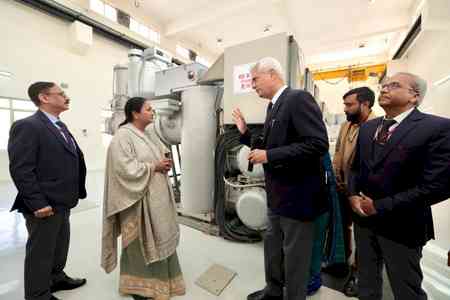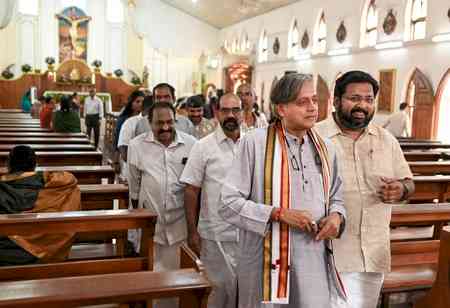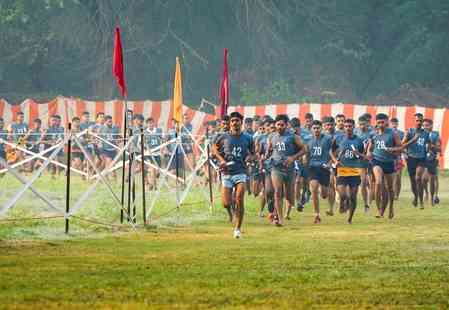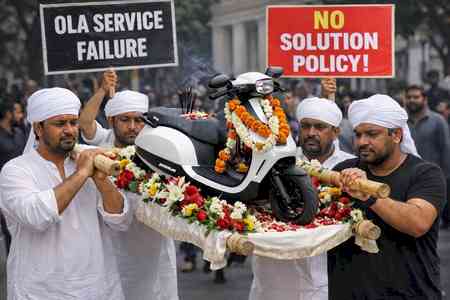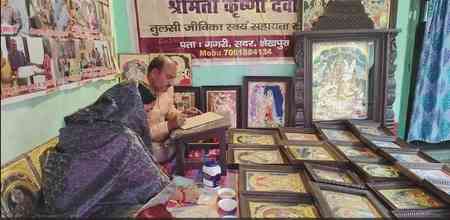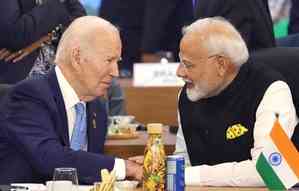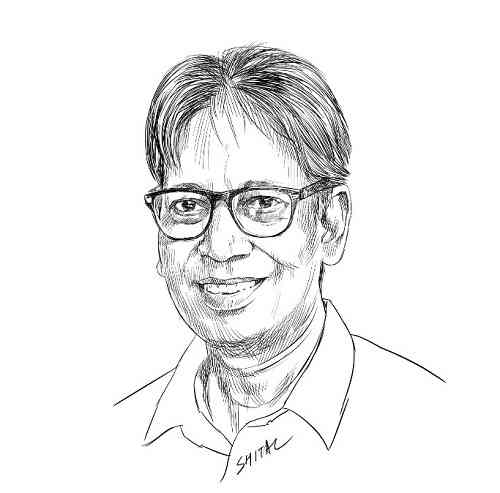EC guidelines for political parties not to use insulting references on PwDs
The Election Commission on Thursday issued guidelines to nudge political parties to move towards respectful discourse for persons with disabilities and said that political parties will not use ill or derogatory or insulting references on disability or PwDs during any public statement or speech, in their writings material or political campaign.
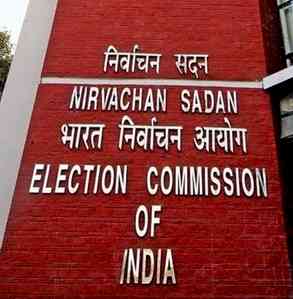
New Delhi, Dec 21 (IANS) The Election Commission on Thursday issued guidelines to nudge political parties to move towards respectful discourse for persons with disabilities and said that political parties will not use ill or derogatory or insulting references on disability or PwDs during any public statement or speech, in their writings material or political campaign.
The Commission said that accessible and inclusive elections have been a non-negotiable premise for the Election Commission to ensure equal participation of Persons with Disabilities (PwDs).
"The Commission is consciously striving to promote the principle of accessibility and inclusivity in the elections through various initiatives. For the first time, to promote inclusivity and respect in the political discourse towards PwD community, the Commission has issued a set of guidelines to political parties and their representatives. The Commission has urged political parties and their candidates to abide by the guidelines in letter and spirit as they are an important stakeholder in the electoral process," the poll panel said.
Of late, the Commission has been made aware of use of derogatory or offensive language in the political discourse about Persons with Disabilities (PwDs). Usage of such semantics in speech or campaign by members of any political parties or their candidates, can be interpreted as an affront to the PwDs. Common examples of ableist language are words like dumb (gunga), retarded (pagal, sirphira), blind (andha, kana), deaf (behra), lame (langda, lula, apahij), etc. It is necessary to avoid usage of such derogatory language. PwDs have to be accorded justice and respect in political discourse or campaign, the poll panel said.
It said that political parties and their representatives should not use ill or derogatory or insulting references on disability or PwDs during any public statement or speech, in their writings or articles or outreach material or political campaign.
It also said that political parties and their representatives should not use disability or PwDs or terms referring to disability or PwDs in the context of human incapacity during any public speech, in their writings or articles, or political campaign, political parties and their representatives should strictly avoid comments related to disabilities or PwDs that may be offensive or perpetuate stereotypes and prejudices.
"Any usage of such language, terminology, context, mockery, derogatory references or insult to PwDs as mentioned may attract provisions of Section 92 of the Rights of Persons with Disabilities Act 2016," the Commission stated.
It further said that all campaign materials, including speeches, social media posts, advertisements, and press releases, must undergo an internal review process within the political party to identify and rectify any instances of ableist language, offensive or discriminatory towards individuals or PwDs.
The Commission said that all political parties should ensure and should declare on their website that they will use Disability and gender sensitive language and etiquette as well as respect inherent human equality, equity, dignity and autonomy and all political parties shall use rights based terminologies as mentioned in CRPD (Convention on Rights of Persons with Disabilities) and not incline towards any other terminology.
The Commission also asked all the political parties to make their public speeches or campaigns or activities or events accessible for all citizens and parties may make their website and social media content digitally accessible to allow accessible interaction with persons with disabilities.
All political parties may provide a training module on disability for party workers at all levels of political process and shall appoint nodal authority to hear complaints from persons with disabilities pertaining to usage of ableist language, it said.
Political parties may endeavour to include more PwDs at levels such as members and party workers to shed the attitudinal barrier of the party and public and provide equal opportunities, it added.


 IANS
IANS 
